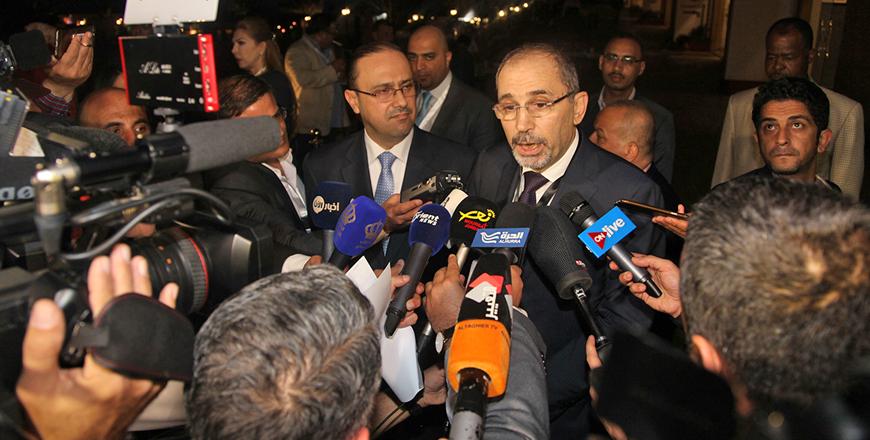You are here
Journalists regret lack of one-on-one interviews in summit’s coverage
By Dana Al Emam - Mar 27,2017 - Last updated at Mar 27,2017
DEAD SEA — Journalists covering the 28th Arab summit commended preparation and organisation measures, yet, agreed that the lack of access to one-on-one interviews with officials from the region has limited their coverage.
In separate interviews with The Jordan Times on Sunday on the sidelines of the Economic and Social Council ministerial meeting to prepare for the Arab League Council meeting at the summit level, journalists agreed that “effective” implementation of the summit’s outcomes are imperative in light of the current regional context.
Meanwhile, they expressed hope that the summit’s resolutions will not remain “mere ink on paper”.
Jamal Elshayyal, a British correspondent for Al Jazeera English, said the technical organisation for the summit is “up to the importance of the occasion”. However, he said the separation of the media centre from the convention centre, where the summit’s sessions actually take place, hindered journalists’ direct interaction with officials.
“As a result, journalists are only receiving information, instead of seeking to dig out information,” he told The Jordan Times.
Liangyong Li, a Lebanon-based reporter for Chinese news agency Xinhua, agreed, adding that in previous Arab League summits he covered, he was able to obtain more information by conducting face-to-face interviews with officials and experts.
“It is a pity [that not all reporters have access to the convention centre]… press conferences of spokespersons are not enough,” he noted.
For her part, Houriyah Jarjar, journalist at the national Algerian TV’s news department, said “intensified” security checks are justified, due to the presence of country leaders and senior officials from the region.
“We, as Algerians, understand Jordan’s keenness on taking all necessary measures to ensure the safety and security of officials and attendees,” she said, citing Jordan’s proximity to unstable areas like Iraq and Syria as a potential for security threats.
She agreed, however, that reporting from televised meetings made her job harder, especially as a TV channel reporter.
Although she did obtain a permit to enter the convention centre, it requires extra time and effort to coordinate her transportation support.
Regarding the topics on the summit’s agenda, managing editor at the official Kuwait News Agency (KUNA), Mohammad Baddah, said that the event is due to cover all regional crises, including the Palestinian issue and turmoil in Iraq, Syria and Yemen, highlighting the summit’s prioritising of Arab concerns.
Jarjar agreed, stressing the significance of discussing the issues of Syrian refugees, youth and the fight against terrorism at the Economic and Social Council Ministerial Meeting’s sessions.
Elshayyal noted that the Palestinian cause has been at the centre of all previous Arab League Summits and is likely to still be prominent at this year’s event, while citing the severe political, economic and social repercussions of current conditions in Yemen, Syria, Libya, Iraq and Egypt.
He expressed his hope that Arab leaders would arrive at a unified stance, noting that Arabs are usually dismissed as decision makers in global issues, superseded by Washington, London and Moscow.
“I wish to be surprised,” he said.
Li also expressed doubts regarding the efficiency of the summit’s results, especially since Syria is not represented in the summit.
Nonetheless, he said the summit remains a good opportunity for Arab leaders to meet and discuss regional issues.
Related Articles
DEAD SEA — His Majesty King Abdullah, who will preside over the Arab League Council meeting at the summit level on Wednesday, will visit Was
AMMAN — The Arab summit preparatory meetings are due to start Thursday, as the summit's media centre was opened at the Grand East Hotel on t
AMMAN — The media committee in charge of preparations for the Arab summit to be hosted in Jordan between March 23 and 29, launched the summi












